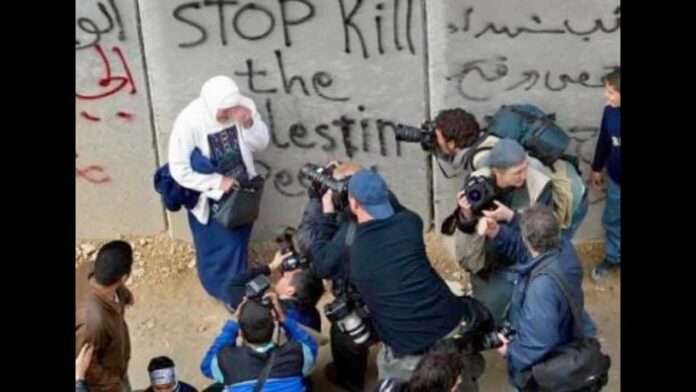It’s a sad comment on New Zealand’s media coverage of Israel that extreme voices get coverage, while balanced and informed commentary is largely ignored.
It’s for good reason that extremist Gideon Levy, who gained a national platform on TVNZ’s Q+A, and RadioNZ in early December is dubbed “Israel’s most hated”. Most of the international community would not endorse his advocacy of a One State Solution, which would mean the end of a Jewish State.
Yet, when Donald Trump made an announcement that merely endorsed long held policy and recognised the de facto situation in Jerusalem, the media response was hysterical.
Not surprisingly, the widespread rage and violence turned out to be far less volatile than predicted. Not surprising, that is, if you listen to more balanced and reasonable commentary.
So it was refreshing, this week, to hear informed opinions from visiting speaker Dr Matthew Levitt, senior fellow and director of the Washington Institute for Near East Policy’s Stein Program on Counterterrorism and Intelligence.
On Radio Live Levitt explained that:
What President Trump actually did was just state the fact that the Israeli capital is in West Jerusalem and his statement was very nuanced, I thought. He was very clear that this action was making no comment on final status on final status negotiation issues, on boundaries, no comment on the importance of this city and the Temple Mount/Haram esh-Sharif for various religious faiths and that it was not meant to undermine but rather to help move forward the peace process.”Dr Matthew Levitt
Dr Levitt also clearly pointed out that the announcement had nothing to do with occupation because
“in the quick years that followed [the founding of the State of Israel in 1948], Israel established its capital in West Jerusalem. East Jerusalem was not occupied by Israel – if anything, it was occupied by Jordan.”Dr Matthew Levitt
As an expert in counterterrorism, Dr Levitt stated that he was not surprised at the lack of protests or terror attacks as a result of the statement. He said while terrorists needed no excuses for carrying out attacks, protest activity in the Arab world would have been hard to sustain because the Arab world is not terribly interested in the announcement, or even interested so much in the Israeli-Palestinian conflict. The fact is, “the Middle East, unfortunately, is burning – from Yemen to Syria to Libya and a whole lot in between – and the Israeli-Palestinian issue is not the reason for any of that”.
Indeed, while the news was full of reports of a largely benign statement from President Trump about Jerusalem, there was little attention paid to his other statement on the same day – the US call on Saudi Arabia to end the blockade of Yemen, where 8.4 million people are a step away from famine.
One must question why there is such disproportionate media attention on Israel when there are far more serious problems in the region. It is also concerning that New Zealand’s media chooses the voices of extremists over moderates. One of those ignored by local media, Palestinian human rights’ advocate Bassem Eid, summed it up well, “The media has become part of the conflict, rather than part of the solution”.
Yair Rosenberg, a senior writer at Tablet, sums it up this way:
The combination of the massively disproportionate number of journalists in Israel/Palestine with the relative paucity of actual action on the ground inevitably leads to magnification of every solitary spark—even when it is not actually newsworthy, and even when it is largely staged. Oversaturation of reporters leads to inflation of coverage.Yair Rosenberg
[FBcomments]



